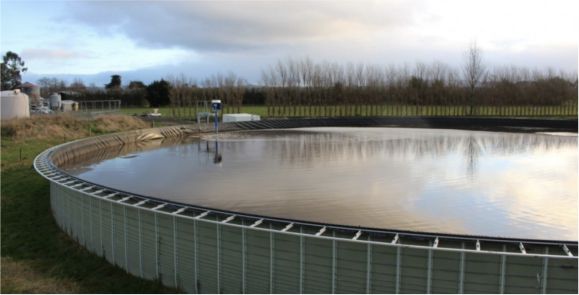
A farm water tank is an essential component of any agricultural operation, providing water for livestock, irrigation, and other farm needs. Proper maintenance of your water tank is crucial to ensure a reliable and clean water supply for your farm. Here are 5 essential tips to help you find the best farm water tank in top condition.
1. Regular Inspections
Regular inspections of your farm water tank are crucial to catch any issues early and prevent costly repairs or replacements. Here are some key points to consider during inspections:
Key points to consider:
- Check for any signs of leaks, cracks, or damage to the tank structure.
- Inspect the roof of the tank for any signs of corrosion or wear and tear.
- Ensure that the inlet and outlet pipes are properly connected and free from blockages.
- Check the water level regularly to ensure it is sufficient for your farm's needs.
2. Cleaning and Disinfecting
Regular cleaning and disinfecting of your farm water tank are essential to prevent the growth of algae, bacteria, and other contaminants. Follow these steps to keep your tank clean:
Steps for cleaning and disinfecting:
- Drain the tank completely and remove any remaining water and debris.
- Scrub the interior of the tank with a brush and a mild detergent to remove any buildup or residue.
- Rinse the tank thoroughly with clean water to remove any soap residue.
- Disinfect the tank with a chlorine solution to kill any remaining bacteria or contaminants.
- Allow the tank to dry completely before refilling it with water.
3. Preventing Algae Growth
Algae growth in your farm water tank can lead to foul odors, clogged filters, and reduced water quality. To prevent algae growth, follow these tips:
Tips for preventing algae growth:
- Install a cover or shade structure over your water tank to limit sunlight exposure, which promotes algae growth.
- Use an algaecide treatment to inhibit the growth of algae in your tank.
- Regularly clean and disinfect your tank to remove any existing algae and prevent new growth.
- Maintain proper water circulation and filtration to prevent stagnant water, which can promote algae growth.
4. Monitoring Water Quality
Monitoring the water quality in your farm water tank is essential to ensure the health and safety of your livestock and crops. Here are some key parameters to monitor:
Key parameters to monitor:
- pH levels: Ensure that the pH of the water is within the optimal range for your farm's needs.
- Chlorine levels: Regularly test the chlorine levels in your water to ensure proper disinfection.
- Hardness: Monitor the water hardness to prevent scale buildup in your tank and plumbing system.
- Contaminants: Test for any contaminants such as bacteria, nitrates, or heavy metals that may affect water quality.
5. Winterizing Your Water Tank
Proper winterization of your farm water tank is crucial to prevent freezing and damage during cold weather. Follow these steps to winterize your water tank:
Steps for winterizing your water tank:
- Drain the tank completely to prevent freezing and expansion of water.
- Disconnect and drain any hoses or pipes connected to the tank.
- Insulate the tank and pipes to prevent heat loss and freezing.
- Install a tank heater or heat tape to keep the water temperature above freezing.
- Regularly check the tank during cold weather to ensure it is functioning properly.